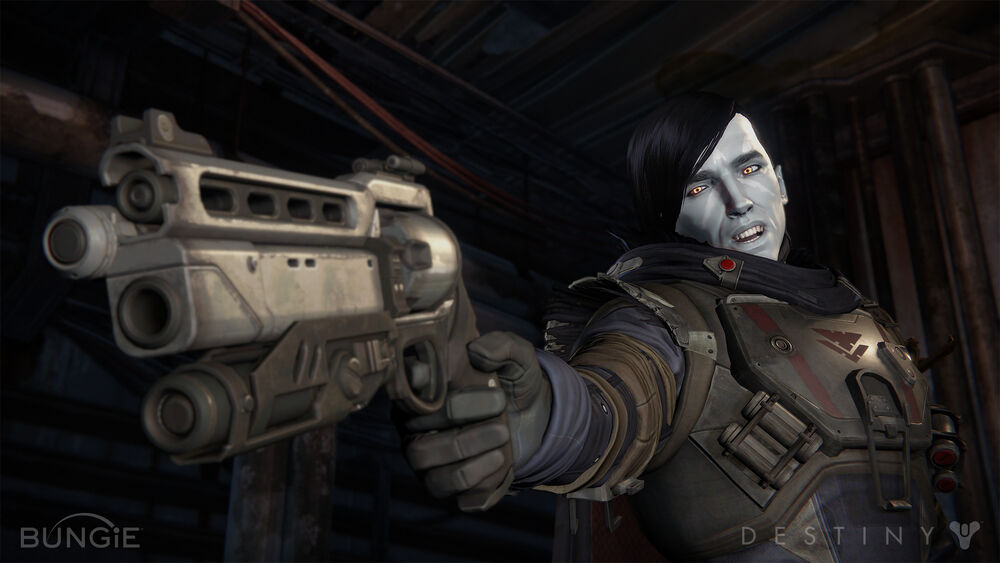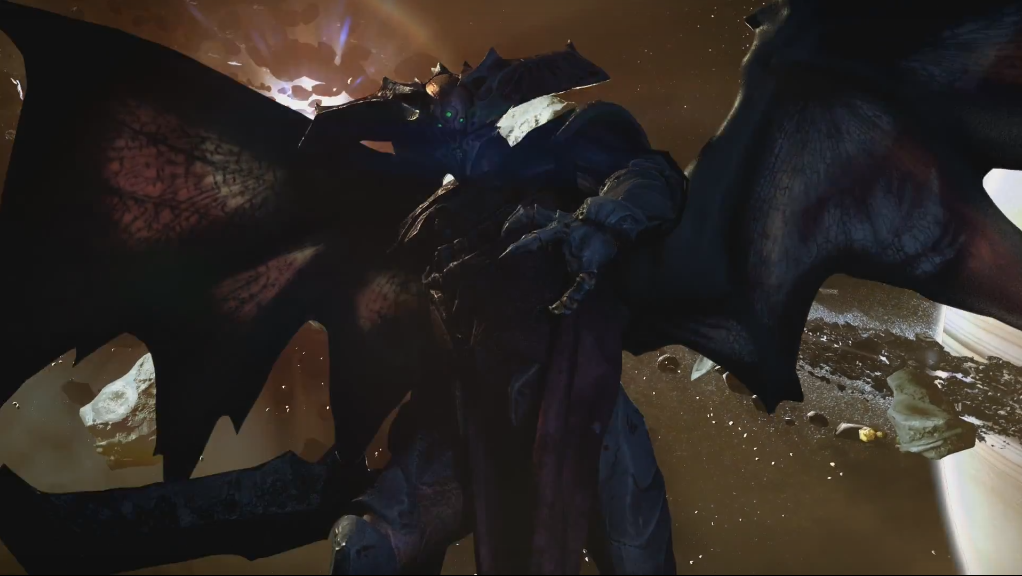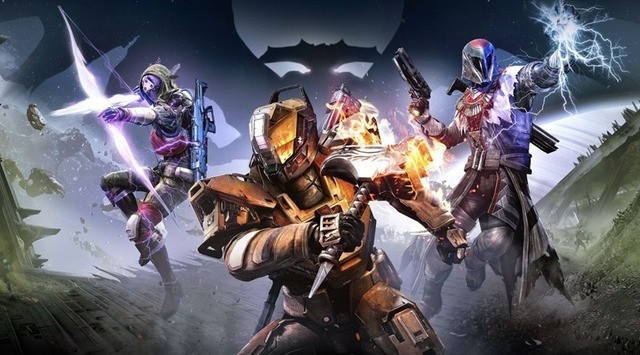At launch, Destiny had trouble living up to its hype, and subscription numbers were less than ideal. However, as of August 2015, Bungie’s spacefaring MMO has now exceeded 20 million subscribers, following content updates, expansions and anticipation of the newest expansion, The Taken King. These can’t all be Halo fans. Aside from Star Wars: The Old Republic, MMOs are largely fantasy based – World of Warcraft, Rift and Everquest all spring to mind. To attract new fans from these and other franchises, Destiny goes beyond the standard sci-fi tropes to appeal to cross-genre audiences, weaving clear fantasy elements into gameplay, story and imagery to create a compelling universe all its own.

Gameplay:
The Guardians are biggest example of this in terms of gameplay. From the outset the three main classes are Warlock, Hunter and Titan – the first two already sounding more than a touch medieval for the galactic setting (many will recognize them as playable classes from WoW, further solidifying the fantasy connection). The subclasses for each class follow suit, sounding more supernatural than technological – such as the Warlock’s Stormcaller, the Hunter’s Bladedancer or the Titan’s Sunbreaker. On top of that, the weapons and abilities your Guardians will gather go way beyond lasers and grenades. Before long, you’ll be hurling lightning, shooting energy arrows and swinging flaming hammers at anything unfortunate enough to stand in your way.

Hero with a flaming hammer versus sword wielding demon – could be a cinimatic from a number of fantasy games.
Lore:
 The background story of Destiny breaks the sci-fi mold too. Most of these stories establish the vastness of the universe through a multitude of alien races, to the point that no two NPCs will tend to look alike. Every character represents a strange new race in an interstellar melting pot. While Destiny does imply there are plenty of alien races yet to be introduced, the main factions are limited to about seven – with only three of them actually playable – fewer even than many other fantasy themed franchises. Some even have direct parallels; the Awoken, grey skinned, yellow eyed humanoids are essentially elf stand-ins with a dash of vampire, while the Hive are your standard evil, all consuming army of undead (they were even just called “space zombies” for a while). No one knows where they came from – maybe they crossed through a portal from Dungeons and Dragons. Various enemy types include knights, wizards and even ogres. That’s not even going into the overall struggle against “The Darkness” – a malevolent entity that devours worlds.
The background story of Destiny breaks the sci-fi mold too. Most of these stories establish the vastness of the universe through a multitude of alien races, to the point that no two NPCs will tend to look alike. Every character represents a strange new race in an interstellar melting pot. While Destiny does imply there are plenty of alien races yet to be introduced, the main factions are limited to about seven – with only three of them actually playable – fewer even than many other fantasy themed franchises. Some even have direct parallels; the Awoken, grey skinned, yellow eyed humanoids are essentially elf stand-ins with a dash of vampire, while the Hive are your standard evil, all consuming army of undead (they were even just called “space zombies” for a while). No one knows where they came from – maybe they crossed through a portal from Dungeons and Dragons. Various enemy types include knights, wizards and even ogres. That’s not even going into the overall struggle against “The Darkness” – a malevolent entity that devours worlds.

A vampire Awoken
Imagery:
Then there’s things like creature and character design such as in the latest expansion, The Taken King, that launched today. The title villian, Oryx, has an umistakable “Sauron” vibe and seems just as out of place as his Hive servants. With his pair of enormous wings, horns and impressive sword, he certainly looks like something out Mordor rather than deep space. It feels weird – in a good way.

The visual and thematic dissonance, is what drew me to Destiny: it has spaceships, androids and the like, but it still strikes the same chords for me as Lord of the Rings or Warcraft. MMO players, whatever they may say about just being in it for loot or PvP, require an immersive and compelling world. If it lacks depth, cohesion or many other things, they’re gone. To make a universe where gamers will visit and want to come back, a developer has to walk a fine line between being different enough to be interesting and familiar enough for newcomers to have something to grab on to. While I may not ever be a true MMO player, I can confidently say that I hope others take some cues from Destiny, and treat genres more like guidelines rather than barriers. Many types of games, not just RPGs, would be all the richer for it.







Published: Sep 15, 2015 05:18 am